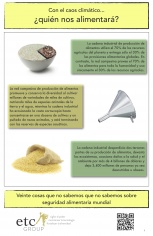Land in Tanzania
- "Land Reform in Tanzania" is a detailed review of the Land and Village Land Acts of 1999.
- "The formalisation process in Tanzania" is a historical perspective on formalisation of land tenure and a critical review of the De Soto programme.
- "The politics of land in Tanzania" is an updated version of my D.Phil. dissertation of the topic. It focuses on the policy making behind land policies, and provides a detailed review of the villagisation exercise, plus case studies on the 1983 Agricultural Policy and the 1995 National Land Policy.






